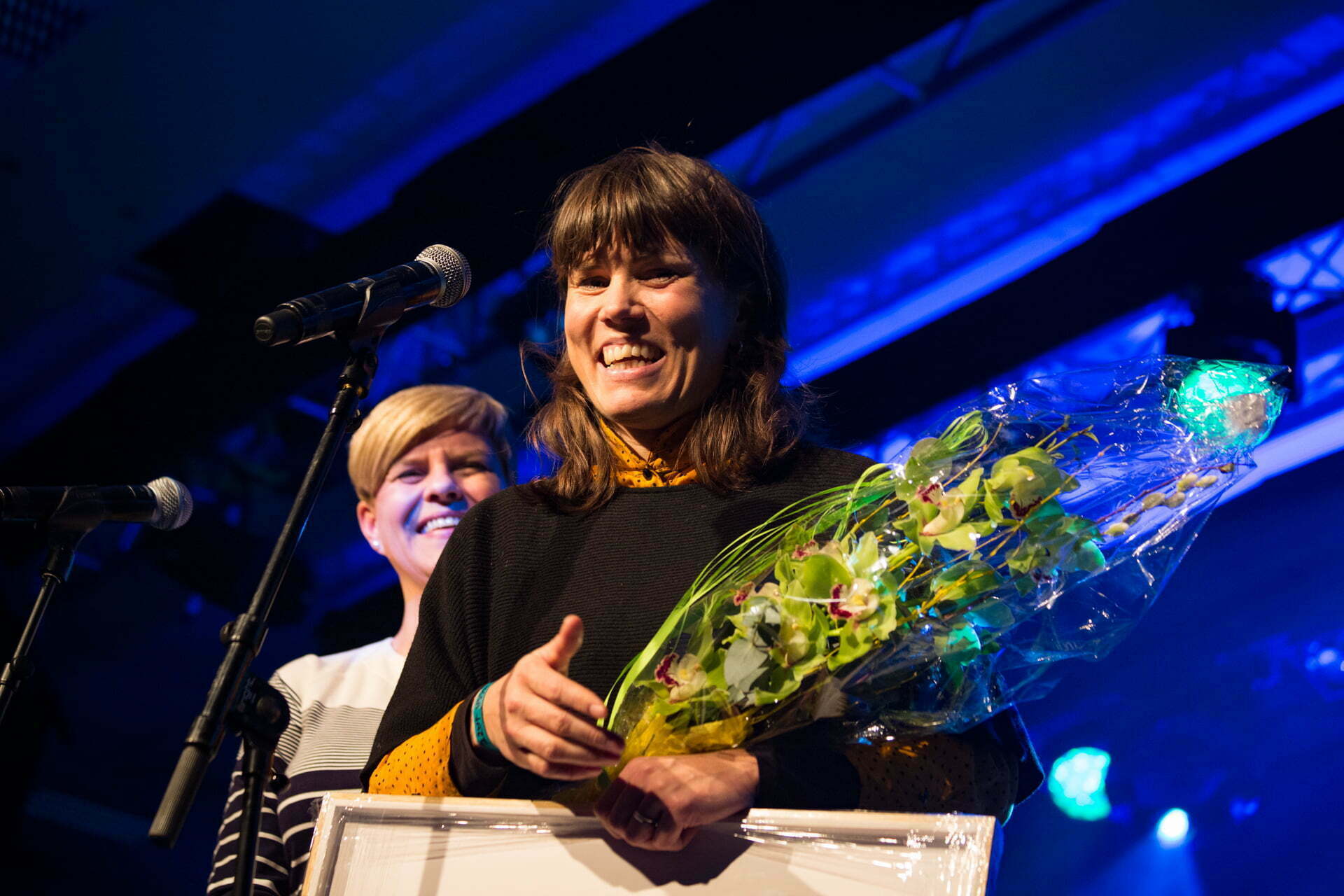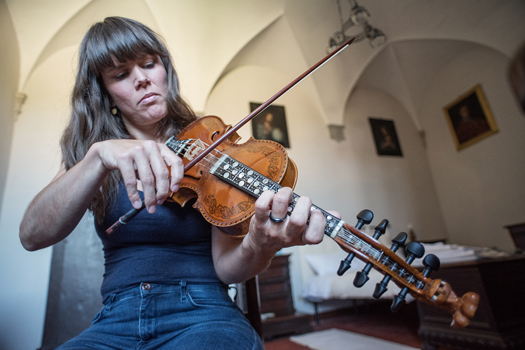Jazz interview with a bad musician, as if hardanger fiddle player, an ungrateful and problematic person Benedicte Maurseth. An interview by email in writing.
JazzBluesNews.com: – Before we jump into anything historical, can you tell us about what we can expect musically this evening?
Benedicte Maurseth: – I grew up in the mountain farm Maurset in Eidfjord, Hardanger. In the Western part of Norway. Interest in music came very early, and especially through my master in Hardanger fiddle playing for close to 30 years now, Knut Hamre. He opened my ears and heart.
JBN: – How has your sound evolved over time? What have you been doing to find and develop your own sound?
BM: – My master has always encouraged me to find my own «fingerprint» in the music, from a very early age while studying the traditional fiddle music from Hardanger. Over time I have also been influenced by the esthetics within early music, using only plain gut strings, tuning my fiddle in a lower pitch, and using baroque bows. Also, American minimalism and free improvised music has become more and more important, and I guess I mixture of these has helped me develop my sound.
JBN: – What routine practices or exercises have you developed to maintain and improve your current musical proficiency, in terms of both rhythm and harmony?
BM: – I am not very good at routines, I must admit. Sometimes I don’t play much for a long period of time, If I work on writing projects or similar. I find long breaks to be just as good as a lot of practicing sometimes. I also find walking very good. For listening to what I am working on. Or just for the silence and the repetition from the constant movement in the feet.
JBN: – How do you keep stray, or random, musical influences from diverting you from what you’re doing?
BM: – Mostly through silence. And I don’t listen to many different things, perhaps just one record again and again, with long breaks in-between.
JBN: – How do you prepare for your recordings and performances to help you maintain both spiritual and musical stamina?
BM: – Mostly by spending time with my instrument, walking and not being social.
There could be talk or advertising about your CD
JBN: – In your opinion, what’s the balance in music between intellect and soul?
BM: – A theater director I worked with many years ago said to me: Create first! Think later. I believe in that.
JBN: – There’s a two-way relationship between audience and artist; are you okay with delivering people the emotion they long for?
I think as a musician we can help the listeners to open to emotions they perhaps where not expecting, and sometimes where not ready for, but hopefully longed for deep inside. Music itself is sometimes so powerful that we can’t really control these emotions.
JBN: – How can we get young people interested in jazz when most of standard tunes are half a century old?
BM: – By playing it well and keeping it fresh in the expression. I have studied old tradition music all my life, that are several hundred years old, and it never feels «old» to me. It changes also, over time, because I change as a human.
JBN: – John Coltrane once said that music was his spirit. How do you perceive the spirit and the meaning of life?
BM: – I feel the same as Coltrane. Also, with other artforms too.
JBN: – If you could change one single thing in the musical world and that would become reality, what would that be?
BM: – The deep injustice in the «streaming-world» today.
JBN: – Whom do you find yourself listening to these days?
BM: – Meredith, Monk.
JBN: – What is the message you choose to bring through your music?
BM: – That music is something that comes through me, not from me. That the our ego needs to be balanced. And that the past and presence is equal and necessary in all music, I think.
JBN: – Let’s take a trip with a time machine: where and why would you really want to go?
BM: – I am happy with the present moment, really.
JBN: – At the bottom line, what are your expectations from our interview?
BM: – Just happy to be asked!
Interview by Simon Sargsyan







More Stories
Interview with Janis Siegel of The Manhattan Transfer: Jazz, being a more refined, interpreted form of music
CD review: George Benson – Dreams Do Come True: When George Benson Meets Robert Farnon – 2024: Video, CD cover
The band was tight as ever. The Warren Haynes Band cuts loose: Video, Photos